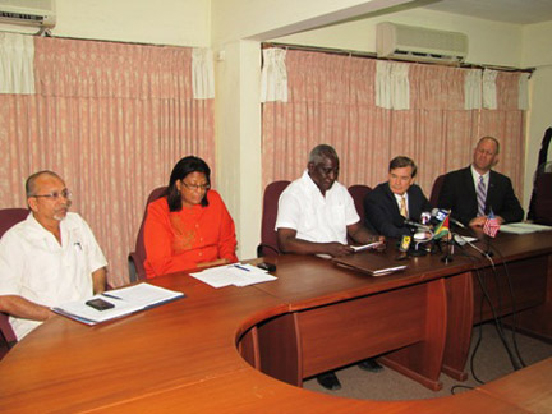Guyana and the United States yesterday concluded a bilateral air transport agreement to liberalise aviation services between the two countries.
The “Open Skies” agreement, signed by Minister of Transport Robeson Benn and US Ambassador to Guyana Brent Hardt yesterday morning at the Ministry of Foreign Affairs, is intended to encourage more competitive services among airlines to benefit both the travelling public and businesses shipping cargo.

“[The agreement] eliminates restrictions on how often carriers fly, the kind of aircraft they may use, the prices they charge; it facilitates transportation, trade and tourism between our countries, and it demonstrates a shared commitment to open competitive market based on international economic system,” Ambassador Hardt was quoted as saying at the signing by the Government Information Agency (GINA).
He added that the creation of open markets and new jobs would be aided under the pact, making it easier for people to travel, interact, and share and build new businesses.
Ambassador Hardt also acknowledged that members of the Guyanese Diaspora is likely to be one of the primary beneficiaries, given that they make up one of the most significant elements of expanding air travel between the US and Guyana.
The agreement will replace the 1946 agreement between the governments of the United States and the United Kingdom that remained in force in Guyana since 1966, when the country gained its independence from Britain.
The US has about 100 similar agreements with other countries, including Jamaica, Trinidad and Tobago, Barbados, St Kitts and Nevis and Suriname from Caricom.
GINA reported Minister Benn as saying that the pact is expected to liberalise the rules for international aviation markets and minimise government’s intervention as it applies to passengers, all cargo and combination air transportation, as well as scheduled and chartered services.
He also said that the agreement will aid the strengthening and expansion of trade and tourism links with the US, benefiting businesses and travellers of both countries by increasing opportunities for air services, while preserving the commitment for aviation safety, efficiency and security.




